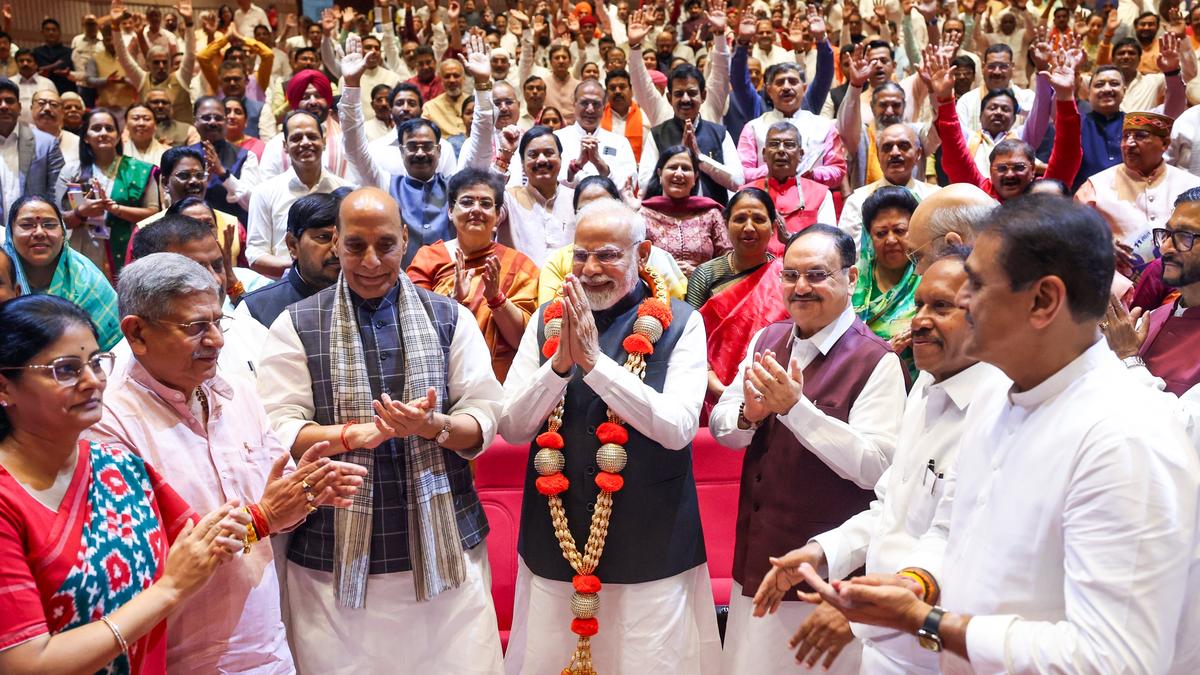Abhishek Choudhary speaks to Nistula Hebbar on the second volume of his biographical work on former Prime Minister Atal Bihari Vajpayee, The Believer’s Dilemma: Vajpayee and the Hindu Right’s Path to Power (1977–2018).
Why is the second volume titled The Believer’s Dilemma after earlier calling Vajpayee the right man in the right party?
They are both true, and part of Vajpayee’s glamour and enigma. His dilemmas began in a major way during the Janata years. For the first time, executive power made the swayamsevak bigger than the organisation – even if only for 28 months. Given the Janata’s composition, a duality began: some decisions were taken by the Janata Party, others by the Rashtriya Swayamsevak Sangh (RSS). Other Janata constituents began pressurising the Jan Sangh elders to sever RSS ties. Vajpayee often spoke like a referee. Worse, when Janata collapsed in July 1979, he apportioned blame to Nagpur. For an organisation whose raison d’être was secrecy, this was blasphemy. It was a rite of passage. But it altered their relationship forever.
How close did Vajpayee come to leaving the BJP for joining V.P. Singh’s new party?
Quite apart from being Vajpayee’s bleakest phase, the late 1980s were generally a confusing period. After the 1984 debacle, he had been sidelined within a party drifting decisively rightward under Advani. To compound the confusion, some RSS elders were also trying to court Rajiv Gandhi, though it never quite took off. Simultaneously, V.P. Singh’s revolt — sparked by Bofors — was gaining traction. Vajpayee saw in it a chance to regroup with other disillusioned moderates. Thus emerged a proposal for a new party. But ultimately he stayed because his political capital was inextricably tied to the Sangh Brotherhood. Had the alternative been more viable organisationally, he might well have walked out.
What one word best captures Vajpayee’s relationships with Narasimha Rao and Advani?
With Rao, I would say parallels. Both were village-born, upwardly mobile Brahmins. Even as they made it to the top in Delhi, neither could wholeheartedly count on their hometown to back them. Both were well-read; both could see all sides of a problem; both appeared detached from power while being shrewd manipulators; both believed in pluralism but looked away when their parties targeted minorities; both tolerated corruption as political expediency. Sedateness was to Rao what charisma was to Vajpayee: each respected the other’s USP.
With Advani, I would say brotherhood. Yes, there was rivalry; they wounded each other. But a deep personal affection, forged in youth, endured for six decades. Vajpayee named him successor, defended him during the Jinnah episode, and allowed himself to be wheeled into Parliament in 2008 to vote against the nuclear deal he had once championed, just so Advani could have a shot at the top job.
Would Vajpayee have governed like today’s BJP if he had a majority?
Every age picks leaders tailored to its moment. If the BJP were in today’s dominant position, someone like Vajpayee wouldn’t be offered the top job in the first place. They wouldn’t need his moderation or emotional intelligence. Someone like Advani would bag the job, with Vajpayee grumbling but sticking around with a couple of fat Ministries.
The RSS seemed both wary of Vajpayee’s independent appeal and reliant on it. Is its attitude towards Modi similar or different?
Modi had a rough start in 2001–02, which defined him and made him a Sangh poster boy. The boycott by liberals and the U.S. visa revocation scarred him, made him vindictive. But he was overall luckier. His timing was fortunate in that the Congress’s morale after the Anna movement was at an all-time low.
Some of Modi’s cross-caste appeal stems from his [partly manufactured] identity as a poor, middle-caste village boy. In post-Mandal India, he hits a sweet spot Vajpayee couldn’t; nor would ever Brahmins like [Devendra] Fadnavis or Himanta [Biswa Sarma].
Third, the generational shift. Modi and Bhagwat watched the fraught Vajpayee–Sudarshan dynamic. They don’t bicker in public. Today’s RSS doesn’t feign an aversion to capital. Modi doesn’t have to deal with the Bharatiya Mazdoor Sangh or Dattopant Thengadi. Sangh Parivar is chuffed to have achieved all it dreamt of — occasional anti-Modi grumbling notwithstanding.
